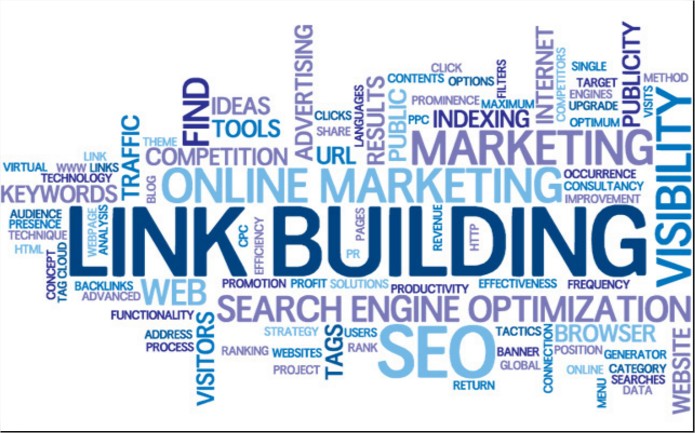Link-building is an essential aspect of any successful SEO strategy. It’s a practice that has been around for many years, but it’s evolving in many exciting ways. In this article, we will discuss everything you need to know about link building in 2024, including myths, best practices, and statistics. We’ll also delve into the world of outsource link building and what it means for your SEO efforts.
Myths About Link-Building
The first thing we need to address is the myths surrounding link building. One of the most common myths is that any link is a good link. This is far from the truth. In fact, low-quality or spammy links can do more harm than good to your website. It’s essential to prioritize high-quality, authoritative links over quantity.
Another myth is that link building is dead. This couldn’t be further from the truth. Link building is still a valuable SEO tactic, and it’s not going anywhere anytime soon. However, it’s important to note that link building tactics and strategies are constantly evolving. What worked in the past may not work in 2024 and later, so it’s crucial to stay up-to-date on the latest trends and best practices.
Best Practices for Link-Building
So, what are the best practices for link building? Here are a few:
1. Focus on creating high-quality, shareable content.
Content will remain king. It’s crucial to create content that is valuable and shareable. When you produce high-quality content, other websites are more likely to link back to your site naturally. This type of link-building is the most valuable because it’s organic and not manipulated.
2. Engage in guest blogging.
Guest blogging is a great way to build high-quality backlinks to your site. When you write for reputable websites in your niche, you’ll have the opportunity to link back to your site. But, keep in mind that guest blogging should not be solely for the purpose of link building. Your primary goal should be to provide value to the readers.
3. Build relationships with other websites in your niche.
Building relationships with other websites in your niche is essential for link building. When you establish yourself as an authority in your industry, other website owners are more likely to link back to your site. This can be achieved through networking, social media, and outreach efforts.
Statistics on Link-Building
Now that we’ve covered best practices for link building, let’s take a look at some statistics that highlight its importance.
– Backlinks remain one of the most crucial ranking factors in Google’s algorithm.
– In a survey conducted by Moz, 37% of SEO professionals stated that building external links is their most effective SEO tactic.
– A study by Ahrefs found that the majority of pages that rank in the top 10 search results have at least one external link pointing to them.
– According to SEMrush, businesses that actively build backlinks generate more traffic and achieve higher rankings than those that don’t.

Outsource Link-Building
Outsourcing link-building has become increasingly popular in recent years. It involves hiring a third-party company or freelancer to handle your link-building efforts. Outsourcing link-building can be beneficial for several reasons.
First, it can save time and resources. Link building is a time-consuming process, and outsourcing it allows you to focus on other aspects of your SEO strategy.
Second, outsourcing can provide access to specialized expertise. SEO companies and freelancers have the knowledge and experience needed to execute effective link-building campaigns.
Finally, outsourcing can be cost-effective. Many SEO companies and freelancers offer packages that are tailored to your budget, making it an affordable option for businesses of all sizes.
In conclusion, link-building will remain an essential tactic in SEO for years to come. By following best practices, keeping up to date with the latest trends, and potentially outsourcing your efforts, you can create a successful link-building campaign and achieve higher rankings for your website.
LINK-BUILDING TRENDS
As we look to the future of link-building, there are several trends that are emerging. Here are a few to watch for:
1. Voice Search Optimization
With the increasing prevalence of voice search technology, optimizing for voice search will become crucial for link building. Voice search queries are often longer and more conversational, so focusing on long-tail keywords and natural language will be key.
2. Influencer Marketing
Influencer marketing has been a growing trend in recent years, and it’s likely to continue in 2024. Building relationships with influencers in your niche can be a powerful way to build high-quality backlinks to your site.
3. Video Content
Video content is becoming more and more popular, and it’s becoming an increasingly important part of link building. Creating high-quality videos that are informative, entertaining, and shareable can help attract backlinks to your site.
4. Social Media Link-Building
Social media link-building is becoming more important as social media platforms continue to grow in popularity. Sharing your content on social media can help attract backlinks and increase your website’s visibility.
5. Brand Mention Link-Building
Brand mention link building involves monitoring mentions of your brand online and reaching out to the website owners who have mentioned you to see if they will include a link back to your site. This can be a great way to build high-quality, authoritative links to your site.
OUTSOURCE LINK-BUILDING
Outsourcing link-building can be a great way to save time and resources while still achieving good results. However, before you decide to outsource your link-building efforts, it’s important to keep a few things in mind:
1. Reputation
When choosing a third-party company or freelancer to handle your link-building efforts, it’s important to do your research and choose a reputable provider. Look for reviews, testimonials, and case studies to get a sense of their track record.
2. Quality
It’s important to prioritize quality over quantity when it comes to link building. Make sure the provider you choose is focused on building high-quality, authoritative links to your site.
3. Transparency
Make sure the provider you choose is transparent in their link-building efforts. You should have access to reports and analytics that show how your links are being built and the results they are achieving.
4. Communication
Communication is key when outsourcing your link-building efforts. Make sure you have a clear understanding of how often you will be receiving updates and how you can contact the provider if you have any questions or concerns.
Link-building will continue to be an important part of SEO strategy in 2024 and beyond. By focusing on high-quality, authoritative links and staying up-to-date on the latest trends and best practices, you can achieve good results. Whether you choose to handle your link-building efforts in-house or outsource them to a third-party provider, it’s important to prioritize quality, transparency, and communication.
MYTHS ABOUT LINK BUILDING
There are several myths about link building that still persist, even though they are not supported by evidence or best practices. Here are a few of the most common link-building myths, and why they are not true:
1. Quantity over Quality
One of the most persistent link-building myths is that quantity is more important than quality. In reality, a few high-quality, authoritative links are usually more valuable than many low-quality, irrelevant links. Focusing on quality over quantity is key to achieving good results with link building.
2. Paid Links are Effective
Another common myth is that paying for links is an effective way to build backlinks. While it is true that some websites offer paid links, this practice is against Google’s guidelines and can ultimately harm your SEO efforts. Instead, focus on building high-quality, organic links that come from reputable sources.
3. Link-Building is Dead
Some people believe that link building is dead, or no longer relevant in today’s SEO landscape. However, this is not true. Links are still an important part of SEO, and building high-quality, relevant links can improve your website’s visibility and search engine rankings.
4. Link-Building is Easy
Finally, some people believe that link-building is easy and that anyone can do it without much effort or strategy. However, effective link-building requires careful planning, research, and outreach. It can be time-consuming and challenging, but the results can be well worth the effort.
BEST PRACTICES IN LINK-BUILDING
To achieve good results with link-building, there are several best practices to keep in mind. Here are a few tips for effective link-building:
1. Build Relationships
Building relationships with other website owners and influencers in your niche can be a powerful way to build high-quality links to your site. Consider reaching out to other websites in your industry and offering to guest post or collaborate on a project.
2. Focus on Quality
As mentioned earlier, focusing on quality over quantity is key in link building. Look for high-quality, authoritative websites and focus on building relationships that can lead to long-term link-building opportunities.
3. Create High-Quality Content
Creating high-quality, shareable content is an effective way to attract backlinks to your site. Consider creating informative blog posts, reports, infographics, and other types of content that your target audience will find valuable and relevant.
4. Stay Current on Best Practices
Finally, it’s important to stay up-to-date on the latest best practices in link building. Google’s algorithms and guidelines are constantly changing, so it’s important to stay informed and adjust your strategy accordingly.
LINK-BUILDING STATISTICS
Here are a few statistics that highlight the importance of link-building in today’s SEO landscape:
1. According to recent studies, backlinks are one of the top three Google ranking factors, along with content and RankBrain.
2. Websites with high-quality backlinks tend to rank higher in Google search results than those with few or low-quality backlinks.
3. Studies have shown that the average number of backlinks for a page that ranks in the top 10 search results is around 30.
4. The majority of website owners and SEO professionals consider link building to be the most difficult part of SEO, but also the most important.
CONCLUSION
Link building will continue to be an important part of SEO strategy in 2024 and beyond. By focusing on quality over quantity, building relationships, creating high-quality content, and staying up-to-date on best practices, you can achieve good results with link building. Whether you choose to handle your link-building efforts in-house or outsource them to a third-party provider, it’s important to prioritize quality, transparency, and communication. Remember to avoid common link-building myths and keep up-to-date on the latest trends and statistics in link-building.
Link building is bound to be an exciting experience for website owners who have dedicated themselves to ensuring that they are always ahead of their competition. Just like in 2022, link building will continue to be an important aspect of SEO. As a result, it is imperative to understand the benefits and drawbacks that come with outsource link-building, which has become increasingly popular in recent years.
Firstly, link building remains a powerful tool that is used to enhance brand recognition and increase the visibility of websites on search engines. Companies are going to rely more on the power of link-building to attract a wider base of potential customers to their sites. Outsourced link-building is one of the most efficient methods to achieve this, as it allows you to focus on other important aspects of your business, while trustworthy outsourced agencies handle the link-building process for you. The process of building links to your website can be very time consuming and draining, hence the need for outsourcing.
Another advantage of outsourcing link-building is that you get to tap into the expertise of professionals who have honed their skills through years of experience. These agencies have a wealth of knowledge and resources readily available, which they could use to give you a competitive edge over other businesses in your industry. Outsourcing also allows you to tap into a wider pool of potential customers who may not be within your immediate reach, as the agencies have expertise in creating a diverse range of links that could target audiences in different locations.
However, outsourcing link building also comes with a few downsides that savvy business owners must be aware of. One of the biggest drawbacks of outsourcing is that you lose control over the link-building process. You may not have a clear understanding of the link-building techniques that the outsourced agencies are using on your site, which could put you at risk of getting flagged by search engine algorithms. Black hat techniques used by unapproved parties could also cause harm to your search engine ranking positions.
Furthermore, outsourcing link building requires a significant financial investment compared to handling the process yourself. While it may seem like a good deal to have someone handle all your link-building needs, the expenses could pile up quickly and without proper ROI or accountability, you may not see the value you were hoping for. With this in mind, website owners looking to outsource their link-building needs must ensure that they work with trustworthy companies that can provide references and evidence of their previous successes.
In conclusion, link building will be an essential aspect of SEO for website owners who want to remain ahead of the game. Outsourcing link-building is a viable option for businesses looking to save time and tap into the expertise of professionals, but also worth considering the costs and risks that come with this practice. If done correctly, outsourced link-building can vastly improve a brand’s online presence and lead to increased revenue, making it an exciting option for those looking to stay ahead of the competition.
On the other hand, a more cost-effective option for website owners who want to maintain control over their link-building process is to handle it in-house. By doing so, businesses can track which tactics work best for their brand and monitor any suspicious activity that could negatively affect their rankings.
In-house link building also allows website owners to build relationships with other businesses or influencers in their industry. By creating partnerships and sharing links with relevant websites, businesses can boost their website’s authority on search engines while creating positive relationships. This option may require more time and effort, but the result is a level of control that outsourcing cannot provide.
Additionally, taking control of link-building gives businesses the flexibility to prioritize their link-building strategies based on their unique needs and budget constraints. For instance, businesses that have a tight budget can opt for organic link-building by creating unique and high-quality content that generates backlinks naturally. Meanwhile, businesses with a high marketing budget can invest in targeted link-building campaigns to gain a larger audience reach and higher visibility.
However, in-house link building has its own set of challenges that website owners must consider. One major issue with in-house link-building is that website owners may not have the necessary knowledge or expertise required to execute an effective link-building strategy. Link building can be complex, as it requires an understanding of search engine algorithms and the ability to identify high-quality sites that would be willing to link back to your website.
Another challenge arising from in-house link building is the need for resources—specifically, time and money. As previously mentioned, the process of link building can be time-consuming and drain resources from other essential aspects of a business. A business owner may need to invest in training staff members on proper link-building techniques or may even have to hire dedicated link builders specifically for this purpose.
In conclusion, both outsourced and in-house link building come with their own set of pros and cons. Outsourcing offers the flexibility of having experts handle your link-building strategy while providing more time to focus on other aspects of your business. In-house link building, on the other hand, gives website owners complete control over the process and the ability to customize their strategy to fit their unique needs.
Regardless of your decision, it is crucial to prioritize understanding the benefits and drawbacks of both link-building options before making any commitments. With a clear understanding of both options, you can make an informed decision that is right for your business. As link building continues to be a vital aspect of SEO, it is essential to stay educated on evolving tactics and strategies for an ever-changing digital landscape.
So, make sure to keep yourself updated and aligned with the latest updates and technology. Moreover, as we look ahead,it is clear that link-building will continue to play a crucial role in website ranking and SEO. With changes in Google algorithms, the focus on authoritative and quality backlinks will become more critical than ever. Therefore, website owners must understand the best link-building techniques available and how to use them effectively.
One of the most popular link-building techniques is outsourcing link-building. This technique involves hiring a specialized team or agency to handle all link-building activities for your website. Outsourced link building is a popular option, especially for businesses that lack in-house resources and expertise in link building.
One significant advantage of outsourced link-building is the access to a pool of experts who are knowledgeable about link-building tactics and strategies. These professionals use their years of experience to generate high-quality backlinks that help boost a website’s domain authority and rankings on search engines. This technique ensures that website owners have the best experts working on their link-building campaigns, leading to better results in less time.
Another benefit of outsourced link building is the ability to access the latest technology and tools used for link building. A specialized team or agency has access to essential software and tools that can analyze the potential of backlinks and help identify opportunities to acquire natural links. This technology helps streamline the link-building process and improve the accuracy of the campaign’s results.
Moreover, outsourcing link building will save you a significant amount of time, allowing you to focus on other core areas of your business. Link building is a time-consuming task, and outsourcing it to professionals can free up time for website owners to focus on other critical business activities. These could include growing the business, managing resources, and improving customer service, thus increasing revenue.
However, outsourced link building comes with its drawbacks. For instance, many unscrupulous agencies promise to deliver high-quality backlinks in an unethical manner. These agencies use shady tactics that could ultimately result in Google penalizing websites. Therefore, website owners must work with reputable agencies with a proven track record of generating high-quality and authoritative backlinks.
Additionally, outsourcing link-building can be expensive. While outsourcing link building gives access to experienced professionals, it can also attract high costs. Outsourced link-building costs depend on the complexity and scope of the link-building project. Businesses with a tight budget may not afford to outsource link building, making in-house link building the best option for them.
In conclusion, both outsourced and in-house link building have their advantages and disadvantages. Outsourced link building provides access to experienced professionals, saves time, and provides access to the latest technology and tools. On the other hand, in-house link building gives website owners complete control, allows them to prioritize their goals and budget, and builds relationships with other businesses in their niche.
Regardless of the approach you opt for, the most important thing is to understand your business needs, goals, and budget. Conducting adequate research and working with a reputable agency or hiring an experienced team for in-house link-building will ensure that your link-building activities are done professionally, leading to improved website traffic, increased conversion rates, and higher revenues.
In conclusion, as link building continues to be a crucial aspect of SEO, businesses must prioritize understanding the benefits and setbacks of both outsourced and in-house link building. They must also stay up-to-date with the latest trends and developments in link building to ensure that their strategies remain effective and aligned with their business objectives. This way, their websites can consistently rank high and attract the desired traffic and conversion rates.
If you’re ready to improve your website’s search engine visibility and drive more traffic to your site, contact us at SEOArmy today to learn more about our Technical SEO services. We also offer link-building and off-page optimization services to improve your website’s authority and help it to rank higher in SERPs.




